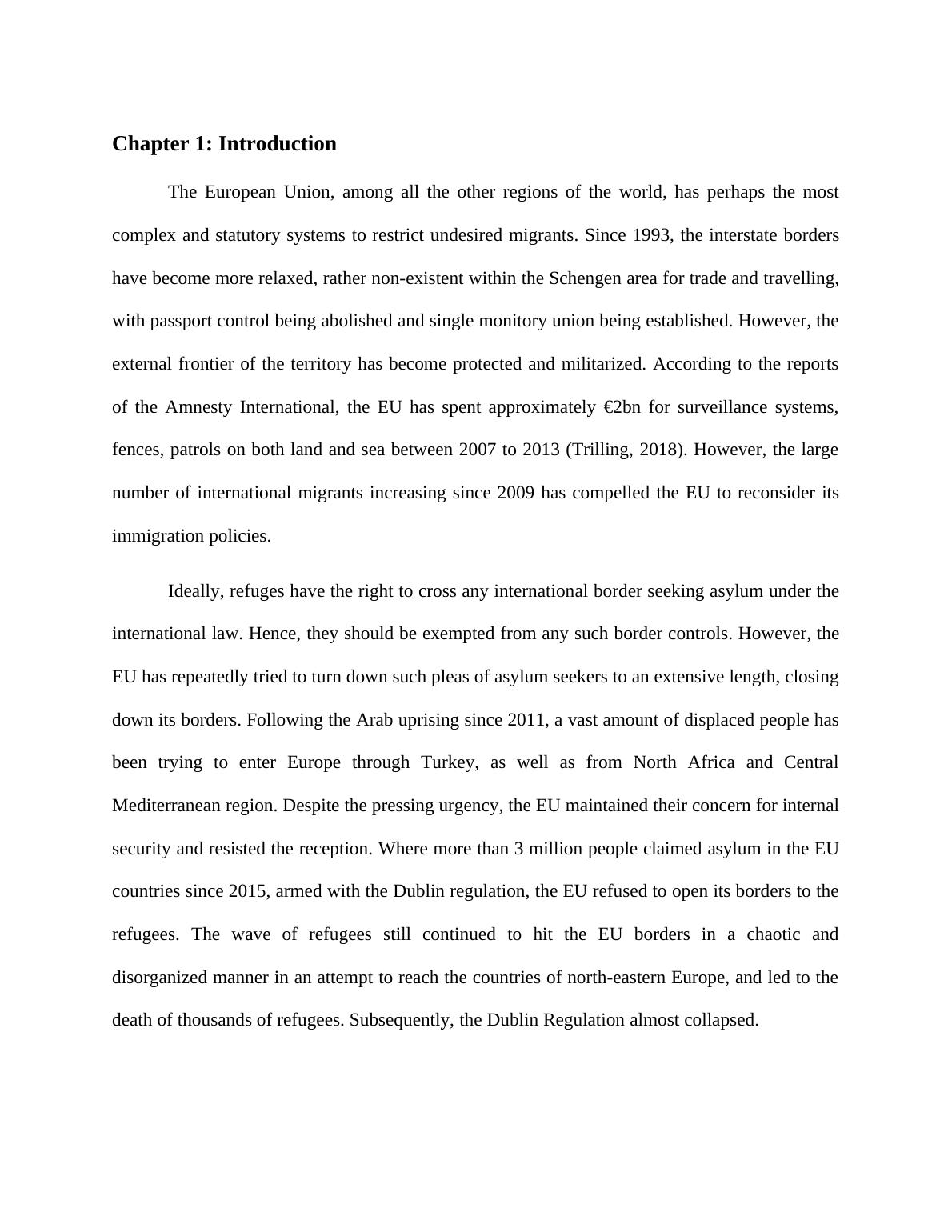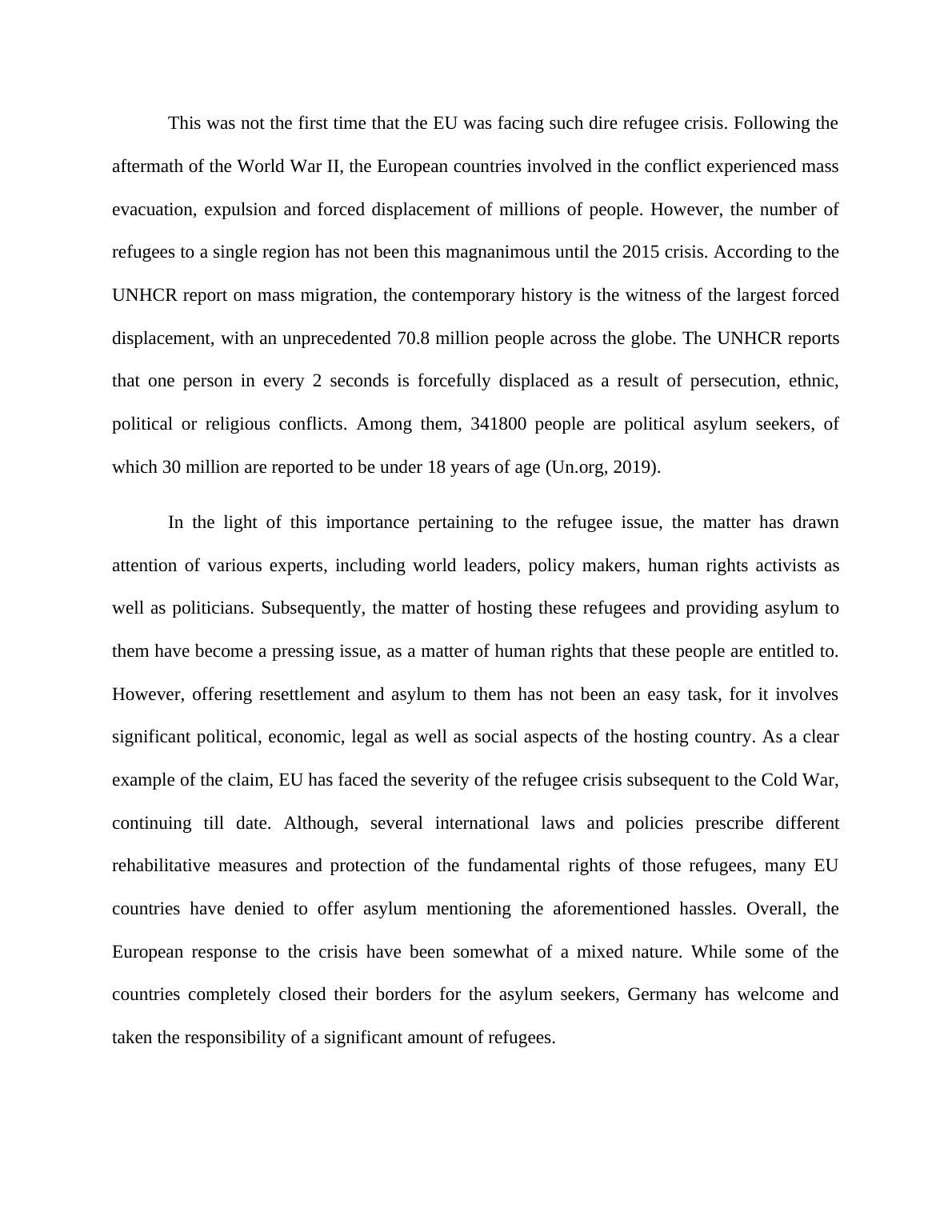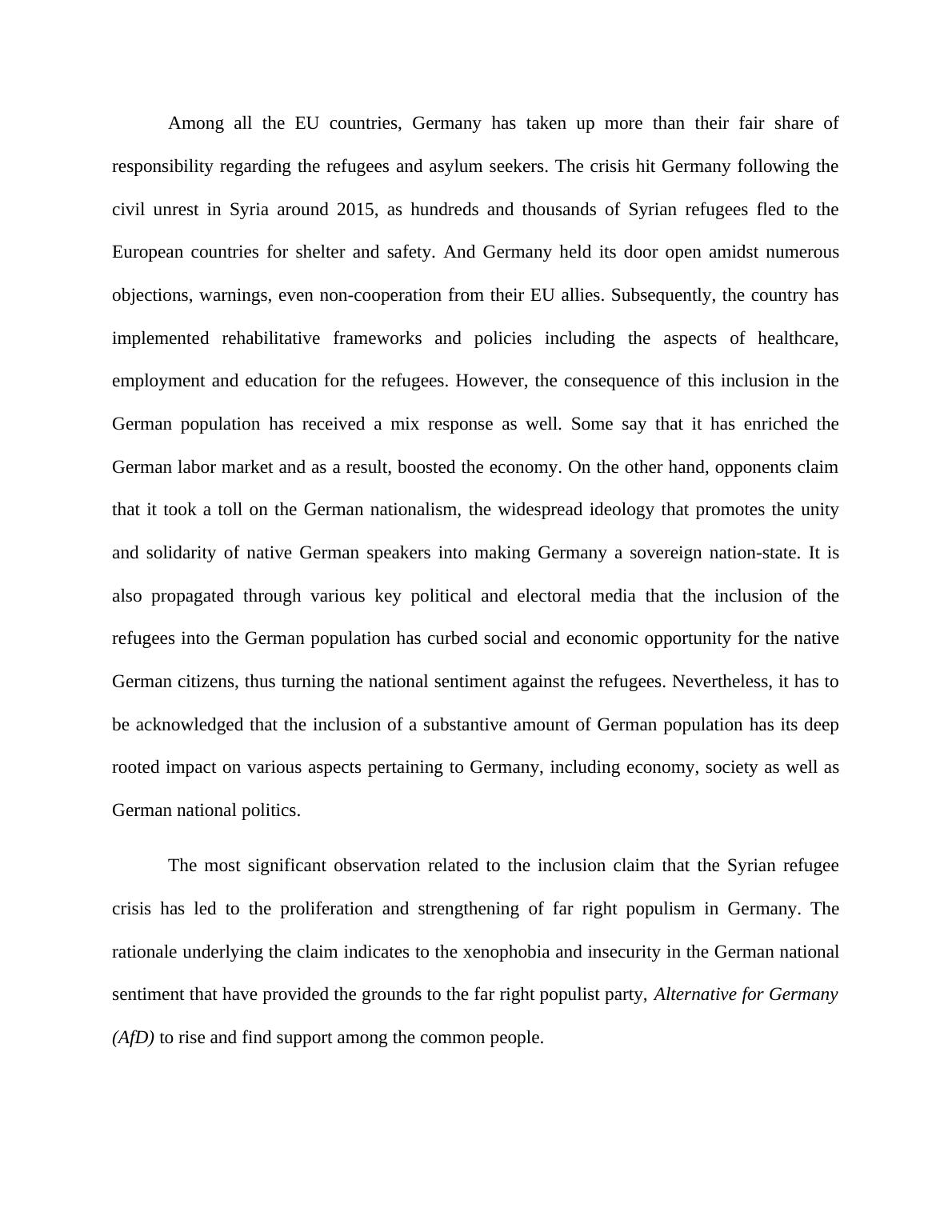The European Union | Report
The research synopsis focuses on the 2015 Syrian Refugee Crisis and its impact on Germany, specifically discussing the context of the crisis in the European Union and the challenges of providing asylum to the refugees.
7 Pages2177 Words25 Views
Added on 2022-08-27
The European Union | Report
The research synopsis focuses on the 2015 Syrian Refugee Crisis and its impact on Germany, specifically discussing the context of the crisis in the European Union and the challenges of providing asylum to the refugees.
Added on 2022-08-27
ShareRelated Documents
End of preview
Want to access all the pages? Upload your documents or become a member.
Tackling the Refugee Crisis
|9
|2644
|267
EU Migration Crisis: Causes, Impact, and Solutions
|6
|1390
|48
Migration of Refugees in Europe | Sociology | PPT
|12
|597
|21
Syrian and Forced Migration
|13
|3460
|27
Research Methods for International Relations
|7
|1938
|447
Refugees, Displacement and the Politics of Migration
|9
|2433
|102



